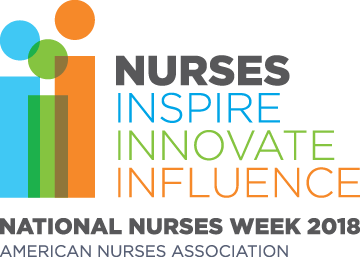 In honor of Nurse Appreciation Week, Legacy Senior Living is sharing insight on the vital role nurses play in residents’ lives each day.
In honor of Nurse Appreciation Week, Legacy Senior Living is sharing insight on the vital role nurses play in residents’ lives each day.
Nurses are often the unsung heroes of our health care system. You will find them delivering care in settings ranging from a physician’s office to hospitals, nursing homes, assisted living communities, or even private homes. In addition to caring for the patient, they often help provide support to the family.
At the Legacy communities throughout the south, we count on nurses for a variety of critically important responsibilities. In honor of national Nurse Appreciation Week celebrated from May 6th through 12th this year, we want to highlight the contributions nurses make to our residents’ lives every day.
Nurses: Inspire, Innovate, Influence
Creating resident care plans
Nurses often take the lead in collaborating with other team members to create care plans for residents in assisted living and memory care communities. These care plans are designed to meet each resident’s unique needs and interests. As a resident’s needs change, the plan of care is adapted and changed, too.
Sometimes the change is only temporary, like when a resident has undergone hip surgery and needs additional support for a few weeks while they recover. Other times the need for more care is permanent. It might be that a resident has been diagnosed with Alzheimer’s or Parkinson’s disease.
The nursing staff typically plays a key role in helping assess these types of changes and making sure the resident receives the type and amount of care they need.
Medication management
Almost all of the residents of an assisted living or memory care community need a helping hand to stay on track with their medication. It’s no surprise why when you learn how many different types of medicine seniors often juggle.
Research shows older adults take an average of five or more different types of medication each day. For those who live in a long-term care setting, that number rises to seven. Remembering to take the right dose of each medication at the right time, in addition to filling and refilling each prescription, can be overwhelming for a senior.
In a senior living community, nurses are the ones who manage the medication process for residents. They oversee medication administration, look for potential adverse reactions in residents, and make sure prescriptions are refilled in a timely fashion.
Chronic disease monitoring
Another important role nurses play in senior living communities is monitoring resident wellness. This is especially important for older adults who live with chronic health conditions like diabetes or high blood pressure.
Nurses in assisted living and memory care communities get to know each resident. It helps them identify small changes that might indicate a problem. They can work with the resident’s physician to intervene early before a small issue becomes a life-threatening one.
Thanking Our Nurses
This week and every week, we salute and thank the nurses who make it possible for our residents to live their best quality of life every day. Stop by the Legacy Senior Living community nearest you to learn more about our commitment to building strong bonds between residents, staff, and families.
